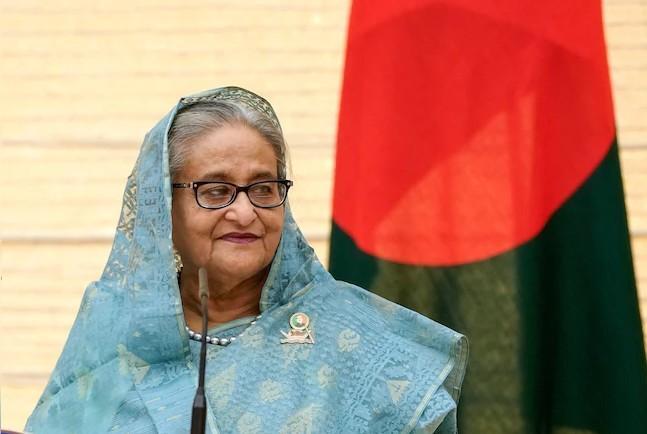
Title: Don’t get volatile behavior: Vaani on censorship & cancel culture
Cancel culture has been a hot topic of discussion in recent times, with many artists and celebrities speaking out against it. The latest to join the chorus is Bollywood actress Vaani Kapoor, who has spoken out against censorship and cancel culture in an interview. Her comments come after the release of her latest film, ‘Abir Gulaal’, was banned in India due to certain scenes that were deemed offensive by the censors.
Vaani expressed her disappointment and frustration at the situation, saying that she doesn’t understand the volatile behavior that comes with cancel culture. She stated that “this cancel culture, say one thing wrong, there are calls for cancel and boycott. I don’t get that volatile behaviour.” Her comments have sparked a wider debate about the impact of cancel culture on the arts and the need for greater freedom of expression.
The ban on ‘Abir Gulaal’ is just the latest example of the restrictive nature of censorship in India. The film was released in several countries around the world, including the US, UK, and Australia, but was denied a release in India due to concerns about its content. The ban has sparked outrage among fans and critics, who are calling for greater freedom of expression in India.
Vaani’s comments come at a time when the Indian government is under pressure to reform its censorship laws. The country has a long history of strict censorship, with films and books often being banned or heavily edited to conform to moral standards. However, there is growing recognition that this approach is stifling creativity and limiting artistic expression.
The ban on ‘Abir Gulaal’ is just one example of the impact of censorship on the arts. The film was heavily edited for its release in India, with many scenes cut or altered to conform to local standards. The ban has sparked outrage among fans and critics, who are calling for greater freedom of expression.
In the past, Indian filmmakers have faced bans and restrictions on their work. The country’s strict censorship laws have led to the banning of many films, including those that deal with sensitive topics like politics and religion. The ban on ‘Abir Gulaal’ is just the latest example of the impact of censorship on the arts.
Vaani’s comments have sparked a wider debate about the impact of cancel culture on the arts. She is not the first celebrity to speak out against cancel culture, with many others expressing similar concerns. The debate has highlighted the need for greater freedom of expression and a more nuanced approach to censorship.
The ban on ‘Abir Gulaal’ is just one example of the impact of cancel culture on the arts. The film was heavily edited for its release in India, with many scenes cut or altered to conform to local standards. The ban has sparked outrage among fans and critics, who are calling for greater freedom of expression.
Vaani’s comments have sparked a wider debate about the impact of cancel culture on the arts. She is not the first celebrity to speak out against cancel culture, with many others expressing similar concerns. The debate has highlighted the need for greater freedom of expression and a more nuanced approach to censorship.
The Indian government has faced criticism for its handling of censorship, with many arguing that the laws are outdated and overly restrictive. The ban on ‘Abir Gulaal’ has sparked outrage among fans and critics, who are calling for greater freedom of expression.
Vaani’s comments have sparked a wider debate about the impact of cancel culture on the arts. She is not the first celebrity to speak out against cancel culture, with many others expressing similar concerns. The debate has highlighted the need for greater freedom of expression and a more nuanced approach to censorship.
In conclusion, Vaani Kapoor’s comments on cancel culture and censorship have sparked a wider debate about the impact of censorship on the arts. The ban on ‘Abir Gulaal’ is just one example of the restrictive nature of censorship in India. The debate has highlighted the need for greater freedom of expression and a more nuanced approach to censorship.





